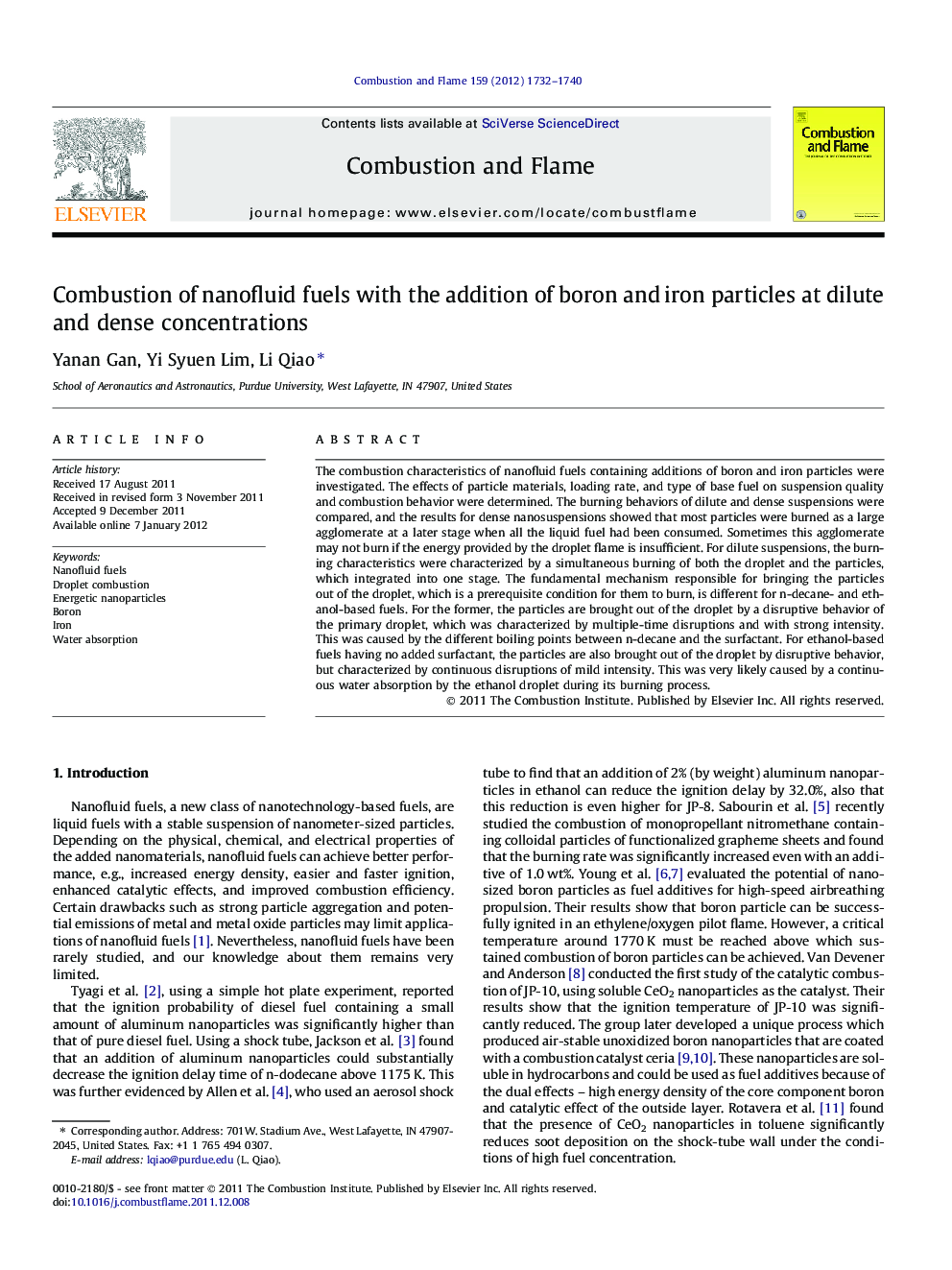| کد مقاله | کد نشریه | سال انتشار | مقاله انگلیسی | نسخه تمام متن |
|---|---|---|---|---|
| 166555 | 457785 | 2012 | 9 صفحه PDF | دانلود رایگان |

The combustion characteristics of nanofluid fuels containing additions of boron and iron particles were investigated. The effects of particle materials, loading rate, and type of base fuel on suspension quality and combustion behavior were determined. The burning behaviors of dilute and dense suspensions were compared, and the results for dense nanosuspensions showed that most particles were burned as a large agglomerate at a later stage when all the liquid fuel had been consumed. Sometimes this agglomerate may not burn if the energy provided by the droplet flame is insufficient. For dilute suspensions, the burning characteristics were characterized by a simultaneous burning of both the droplet and the particles, which integrated into one stage. The fundamental mechanism responsible for bringing the particles out of the droplet, which is a prerequisite condition for them to burn, is different for n-decane- and ethanol-based fuels. For the former, the particles are brought out of the droplet by a disruptive behavior of the primary droplet, which was characterized by multiple-time disruptions and with strong intensity. This was caused by the different boiling points between n-decane and the surfactant. For ethanol-based fuels having no added surfactant, the particles are also brought out of the droplet by disruptive behavior, but characterized by continuous disruptions of mild intensity. This was very likely caused by a continuous water absorption by the ethanol droplet during its burning process.
Journal: Combustion and Flame - Volume 159, Issue 4, April 2012, Pages 1732–1740